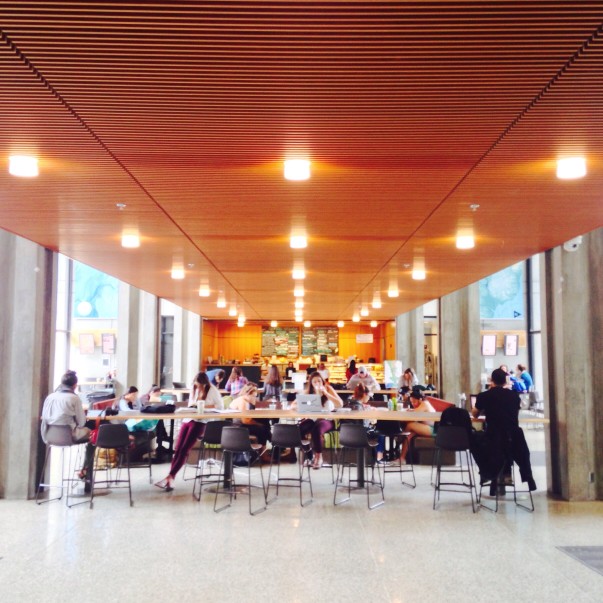Your local bowling alley just might contain the key to the survival of democracy and free enterprise.
Harvard political science professor Robert Putnam did not invent the term “social capital,” but his work in the early nineties brought it into our mainstream social science lexicon. In “Bowling Alone: America’s Declining Social Capital,” he argued that voluntary community associations like bowling leagues, book clubs and church congregations play an integral role in a healthy democracy.
It works like this: by interacting through social groups, people learn patterns of communication and cooperation, and they develop a stronger sense of interpersonal trust. Thisis called social capital because, similar to physical capital or human capital, it leads to productive outcomes, but it is created through social relationships. The particular outcomes of interest here is increased engagement in mutually beneficial economic and civic activity.
In other words, the state and market function better when social bonds are strong and healthy. So what does this mean for capitalism and democracy?
First, it says that values of trust, commitment, respect and justice are essential for a free society. If I do not have a reasonable expectation that you will hold up your end of the bargain—or that some third party will reconcile the injustice if you do not—I am far less likely to cooperate in trade, contracts or even the rule of law itself.
Second, the mechanics of social capital show us that a free enterprise system actually fosters the very values on which it depends. Yes, this is a sort of circular logic, but empirical evidence confirms it: Trust begets cooperation, and cooperation begets trust. It is an upward spiral.
The moral fruits of free enterprise
We know that capitalism encourages individuals to produce and exchange for mutual benefit, allowing individuals to maximize their potential, producing a more prosperous society. But while its benefits for liberty and prosperity are well understood, the argument for the free enterprise system as a conduit of virtue seems quite underappreciated in modern scholarship.
AEI’s own Arthur Brooks is one of the leading advocates for this view, as is the Acton Institute’s Robert Sirico, among a handful of others. Yet, they stand on the shoulders of giants from two millennia of Christian theology. From Augustine and Aquinas to Luther and Calvin, it was Christianity that catapulted the West into an age of liberty and prosperity (Rodney Stark’s “The Victory of Reason” offers a great exploration of this historical perspective).
Many of the Enlightenment thinkers who helped to establish the tenets of classic liberalism—John Locke, David Hume and their contemporaries—did so within a Christian moral framework. Sadly, this fact is often circumvented by those who would rather us believe human progress was part of a movement away from religious ideas.
Commerce is a form of human interaction that is entirely dependent upon trust. Before a product or service is sold, a buyer has to trust that the seller has truthfully described it, and the seller has to trust that the buyer’s payment is valid. If the product is faulty or a check bounces, trust is lost, and the likelihood of repeat business drops sharply. But if both parties walk away satisfied, they look favorably on the opportunity to cooperate in the future. More of this kind of interaction increases social capital, which leads to a stronger economy, a more free and efficient political system, and flourishing communities.
“Investing” in social capital
So how can we help our communities, states and our nation flourish? The answer is not a mystery. It is not even a recent discovery.
Christ said to “do to others what you would have them do to you, for this sums up the Law and the Prophets.” Ghandi put in his own words: “be the change you wish to see in the world.” It was the essence of Immanuel Kant’s moral imperative, and is known in common parlance simply as the “Golden Rule.” It may seem like a simple solution, but a free economy and a healthy democracy rely on the foundation of trust that comes with honesty.
The reason many people lose their sense of trust is because they’ve experienced betrayal—they became victim to a crime, experienced a painful divorce or felt rejected in some other sense. This may give further explanation as to why, in James 1, we are called to “look after orphans and widows in their distress.” When we look at the past lives of bullies, thieves and other social misanthropes, we often find some form of intense personal abuse. Lacking trust in others, they operate outside of regular norms, and resort tolying, cheating and stealing to get by. This behavior makes sense, of course, in an every-man-for-himself world, like brute animals in Thomas Hobbes’s rather atheistic state of nature.
But we are not mere animals. Made in the image of God, our capacities for reason and virtue are also obligations to put themto use. We must be honest people who keep our word, engage with one another and meet the needs of those around us. That’s the only kind of economic stimulus package we need, because there is no prosperity without freedom, no freedom without virtue, and no virtue without relationship.



